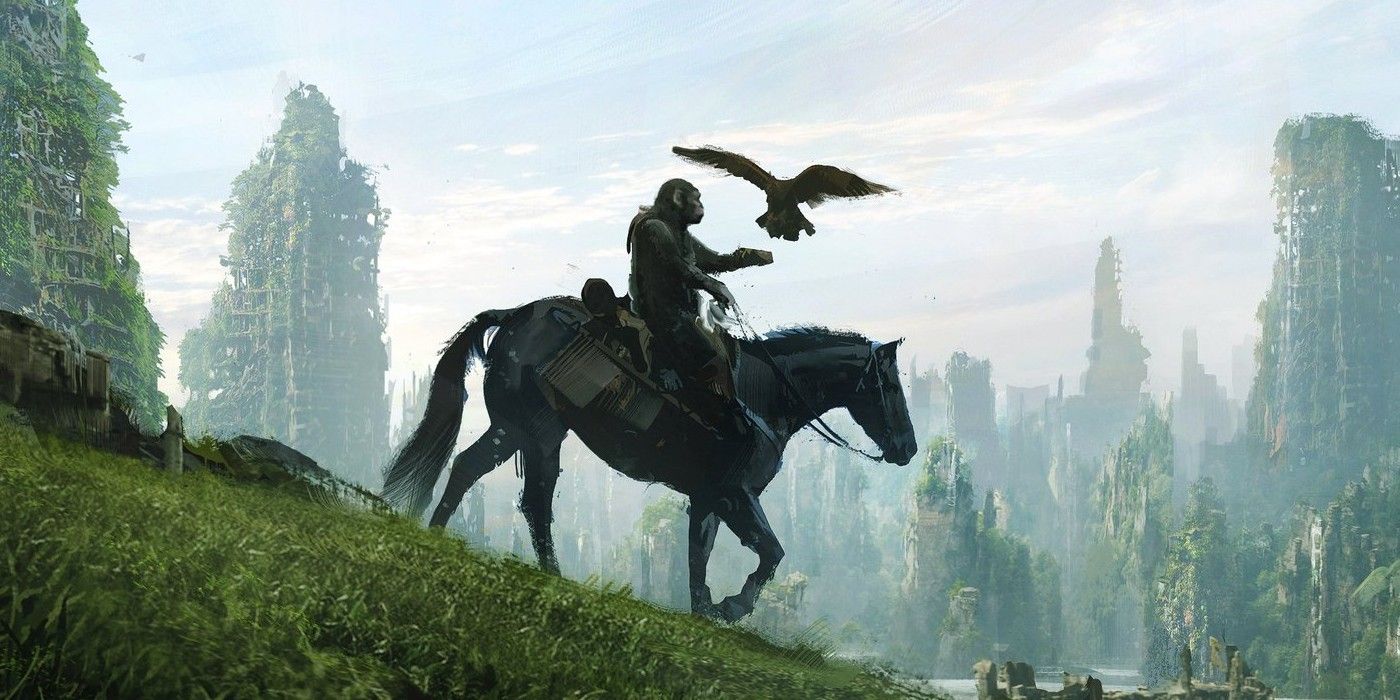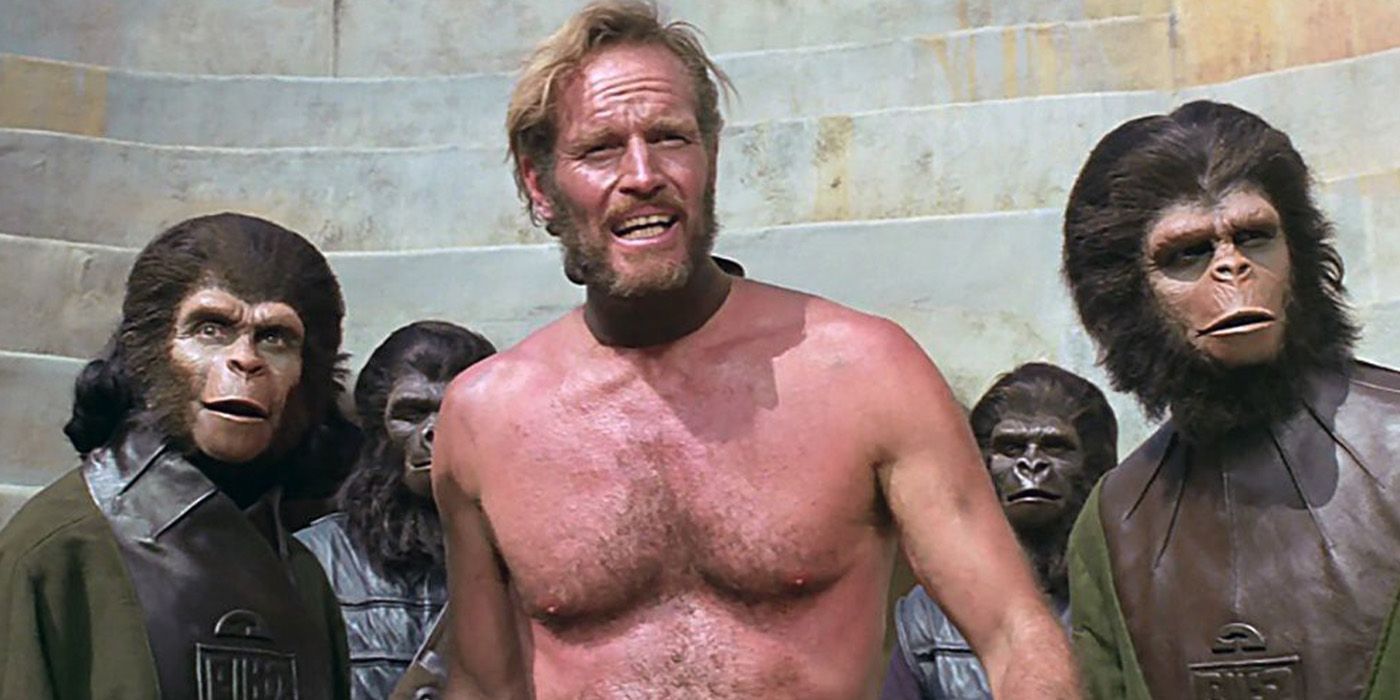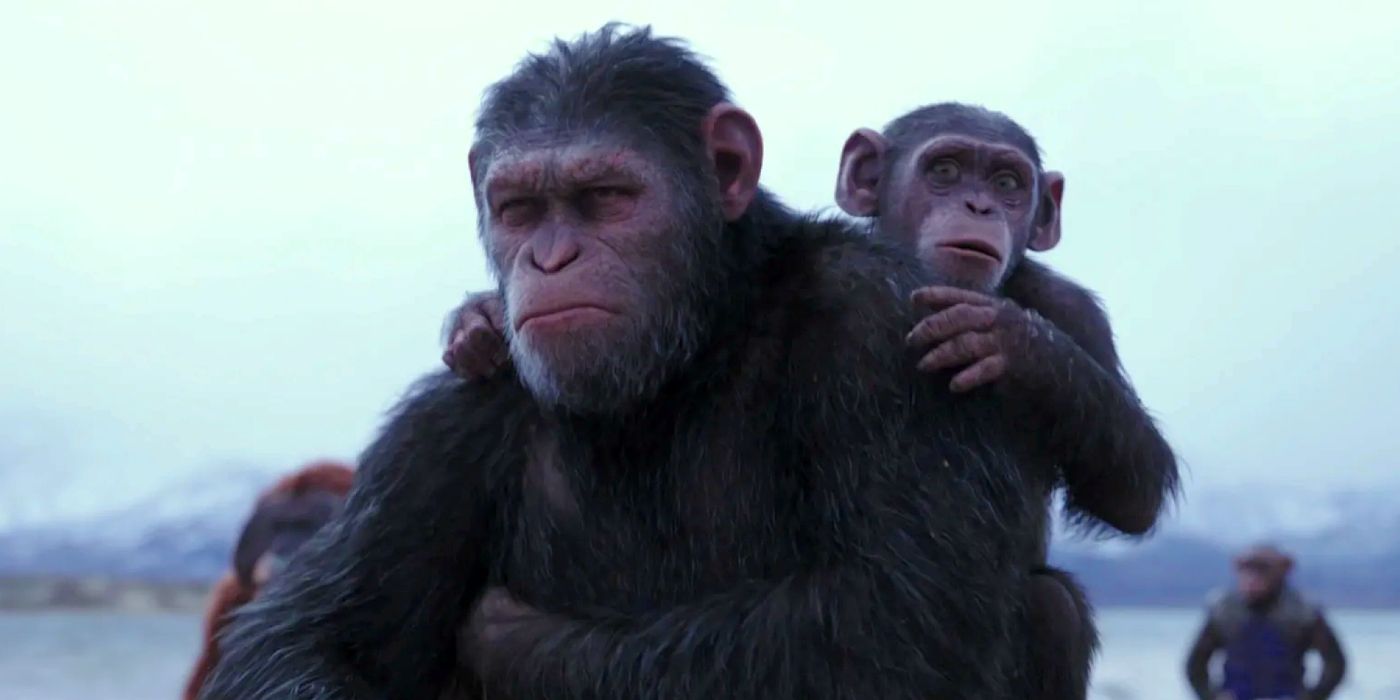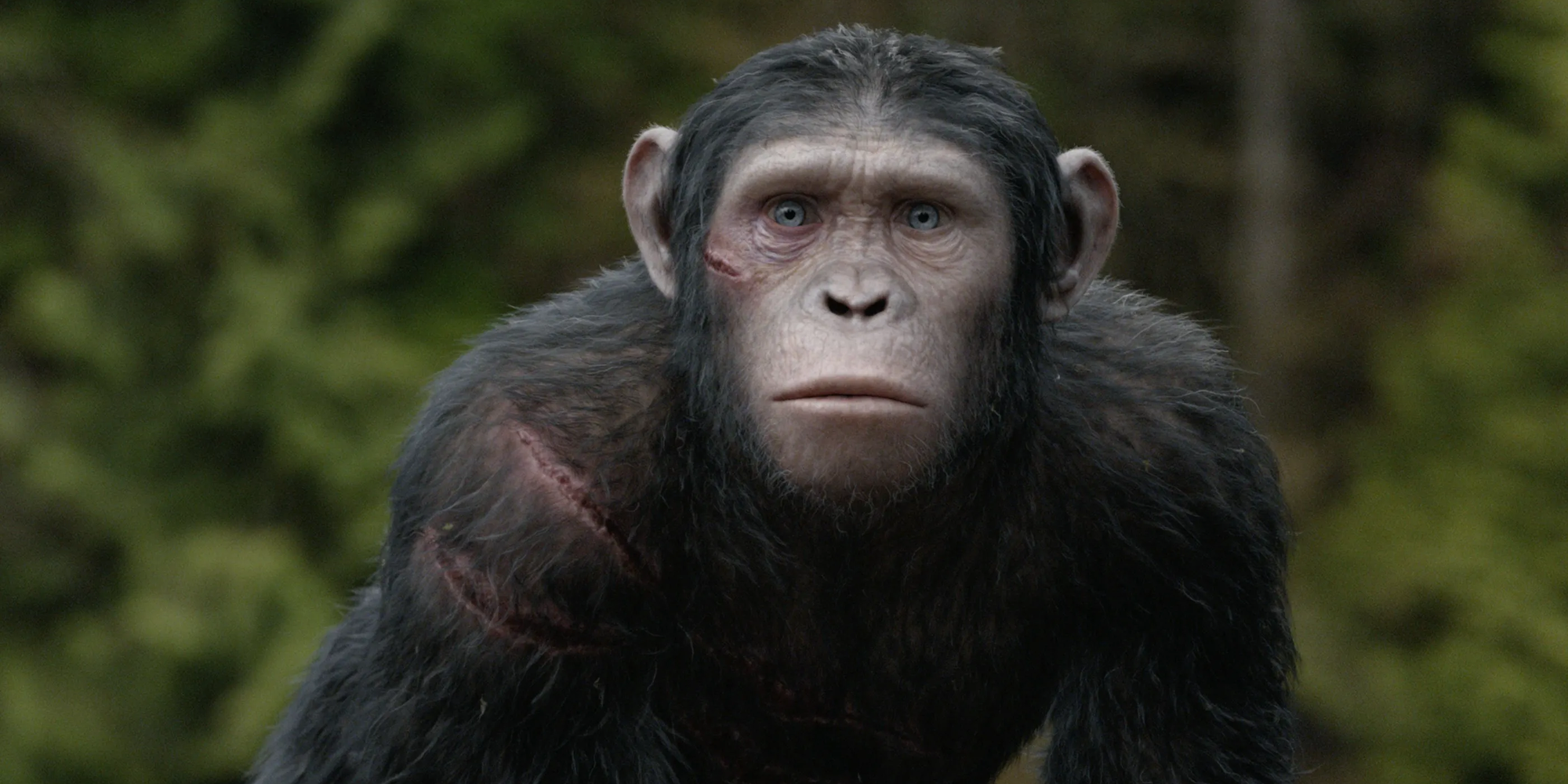Kingdom of the Planet of the Apes could finally be the movie that incorporates time travel into the franchise’s rebooted timeline. The Planet of the Apes franchise has a complex history. The original 1968 Planet of the Apes culminates with one of the best movie twists of all time as its protagonist, played by Charlton Heston, discovers that he is not on a distant planet, but a ruined Earth hundreds of years in the future. That massively successful film spawned numerous sequels that stayed true to the original’s explorations of humanity, civilization, and time travel.
Later films in the original Planet of the Apes franchise see the apes travel back in time to 1970s Earth, where the hyper-intelligent future ape Caesar becomes the architect of an uprising set against the backdrop of a plague that decimates humanity. This same plot features in the rebooted Planet of the Apes prequel trilogy, which began in 2011 with Rise of the Planet of the Apes. While this trilogy is removed from the far-future heightened sci-fi of the original run, the upcoming sequel Kingdom of the Planet of the Apes could take the biggest leap yet in uniting the two timelines, possibly aided by the reintroduction of time travel.
Theory: Kingdom Of The Planet Of The Apes’ “Human Technology” Is A Time Machine

The official plot synopsis of Kingdom of the Planet of the Apes contains a great deal of intriguing information. The reduction of humans to a “feral state” and the in-fighting between ape clans paints the picture of a grim future, yet the cryptic hint of a “secret human technology” is the most compelling of all. This technology could relate to the simian flu, which wiped out the majority of humanity in the preceding films; given that the ape searching for it is a warlike authoritarian who’s enslaving other apes, it may well be a weapon, like the ancient nuclear bomb in the 1970 sequel Beneath the Planet of the Apes.
However, one theory suggests that another element from the original film series may come into play: time travel. Not only has the concept been largely absent from the reboot series, but it would be a natural progression of the thematic journey of the new Planet of the Apes movies. The reboot continuity has always been about the battle between repeating the mistakes of humans and building something new. A time machine would be the perfect articulation of this duality. In the right hands, it could heal the fractures of the past and produce something better; in the wrong hands, it would only continue the cycle of brutality.
Kingdom’s Time Travel Would Restore A Missing Planet Of The Apes Theme

Incorporating time travel into the new Planet of the Apes series would bring the new continuity closer to the original spirit of the franchise. Indeed, every Planet of the Apes timeline, including Tim Burton’s ill-fated 2001 outing, has involved time travel. The original Planet of the Apes film begins with Charlton Heston’s Taylor traveling through a time warp into Earth’s far future, and the later films in the original run see three evolved apes traveling back in time to 1970s Earth. The new continuity even acknowledges this concept with a brief news clip in Rise of the Planet of the Apes referencing Taylor’s “lost” ship, Icarus.
While the newer films have taken a more grounded approach to the “ape civilization” concept, they are often surprisingly diligent in honoring the original films. They remain true to the ideological inquiry of the original movie and its ensuing installments, with the fresh setting offering a new context for the familiar explorations of cruelty and civilization. Moreover, the idea of an ape uprising caused by a virus and led by an ape named Caesar is lifted wholesale from the original film series. Thus, while time travel may seem an unlikely pivot for the “realistic” reboots, its absence constitutes a glaring omission for the subtly faithful franchise.
Time Travel Means Kingdom Can Fix The Planet Of The Apes Timeline

The deceptively faithful Rise of the Planet of the Apes timeline could easily sync up with the 1968 film. Dawn of the Planet of the Apes and War of the Planet of the Apes director Matt Reeves even said as much in an interview with Fandango that “this kind of epic journey [may] take us toward the ’68 movie.” With Kingdom of the Planet of the Apes‘ advancing timeline seeing humans regress into a feral state and certain ape clans ramp up their brutality, the franchise does seem to be inching toward the world encountered in the original movie.
There are some timeline discrepancies that keep the two continuities from syncing up perfectly. In the ’60s and ’70s Planet of the Apes films, there’s an uprising led by an ape named Caesar, but he does not owe his intelligence to an experimental Alzheimer’s treatment, like in Rise of the Planet of the Apes. Moreover, the pandemic that decimates the human population in the original films is not Simian Flu. The best hope of fixing the Planet of the Apes timeline comes with disruptive time travel, which would allow the reboot franchise to forge its own continuity while still taking place within the canon set up by the original films.
Time Travel May Not Work For A Modern Planet Of The Apes Movie

There’s a decent amount of evidence to support the theory that time travel will come into play in Kingdom of the Planet of the Apes. One Kingdom of the Planet of the Apes production video revealed that the fourquel will likely involve the forbidden zone, an area that has housed crashed time-traveling spacecraft in previous Planet of the Apes movies. The area may hold the same secrets in the new film. However, despite the Rise of the Planet of the Apes series’ subtle acknowledgments of the original film canon, there are irreconcilable tonal differences between the Planet of the Apes reboot movies and the original films.
The grounded retelling of Planet of the Apes in the reboot series benefits from maintaining distance from the hard sci-fi of the original movies. Matt Reeves’s movies Dawn of the Planet of the Apes and War of the Planet of the Apes use the sci-fi foundation of a speculative apocalypse to tell an organic story of the violence inherent to the formation of a new civilization. Kingdom of the Planet of the Apes, which is directed by Wes Ball rather than Reeves, may well pivot to a more heightened sci-fi tone, but doing so carries the risk of losing everything that has made the reboot series great.




